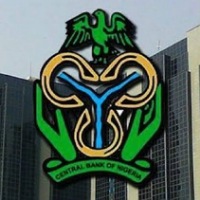Banking
Sanusi’s suspension deals blow on Nigeria corruption fight
ABUJA – The suspension of Central Bank of Nigeria (CBN) Governor Sanusi Lamido Sanusi, who sounded the alarm on alleged billions of dollars of missing oil revenue, sets back the fight against corruption in the country.
President Goodluck Jonathan, 56, has come under fire from opposition political parties, investors and the public, after suspending Sanusi on Feb. 20 for what he called acts of “financial recklessness and misconduct,” Bloomberg reports. That comes two months after Sanusi, 52, first called for an investigation into the state-owned oil company for allegedly failing to repatriate $20 billion of revenue to the government.
“You take the accuser and accuse him of being corrupt,” Folarin Gbadebo-Smith, managing director of the Center for Public Policy Alternatives, said in a phone interview from Lagos, the commercial capital. “Nothing is more indicting to the government than when that happens because it is clear that they are trying to protect a system that perpetrates corruption.”
Sanusi, who was due to leave his post in June when his term ended, said in an interview on Feb. 21 that his suspension probably spells the end for the probe into the accounts of the Nigerian National Petroleum Corp (NNPC). The company has repeatedly denied the allegations that it retained revenue owed to the state.
Sanusi has suffered the same fate as others who have tried to investigate alleged corruption in the oil industry.
Farouk Lawan led a parliamentary probe in 2012 against fuel importers that found they had received at least N1.1 trillion ($6.6 billion) illegally as subsidies between 2009 and 2011. He was in turn accused of accepting a $620,000 bribe from a fuel importer who was a frequent donor to Nigeria’s ruling People’s Democratic Party (PDP). Lawan, who continues to serve as a lawmaker, denied the allegation.
Nuhu Ribadu, the first head of the anti-graft agency, the Economic and Financial Crimes Commission (EFCC) was removed from his position by former President UmaruYar’Adua in 2007 after bringing corruption charges against senior politicians. One of his cases involved Diepreye Alamieyeseigha, Jonathan’s former boss and an ex-governor of the oil-rich Bayelsa state.
Alamieyeseigha pleaded guilty and returned about N43 billion of embezzled funds to state coffers, according to Ribadu. Last year, Jonathan granted him a pardon that allows him to seek office again.
“The few people who have stood up to blow the whistle against corruption in Nigeria have always invariably been victimised,” Gbadebo-Smith said.
Nigeria was ranked 144 out of 177 countries on Transparency International’s Corruption Perception Index last year. Oil accounts for about 80 percent of government revenue in Nigeria and more than 90 percent of foreign income.
Sanusi has helped to build credibility in the nation’s economic policies by stabilising the currency, building foreign currency reserves and keeping inflation under control. Within four months of taking office in 2009, he fired bank executives after investigations found evidence of reckless lending.
“The message that is being sent is a message nobody should listen to because the message is, if you attack us, we will deal with you,” Sanusi said in a TV interview with Sahara Reporters on Feb. 20, adding that Jonathan had previously asked him to resign. “People should not listen to that message. They should not hear it. It is not a message. We should remain focused.”
The naira gained for the first time in six days, climbing 1.3 percent to 163.35 against the dollar as of 3:33 p.m. Monday in Lagos.
Sanusi said last week he plans to challenge his suspension in court to ensure the independence of future Nigerian central bank governors.
The corruption fight may also be sidelined as Africa’s most populous nation heads toward presidential elections next year and Jonathan struggles to contain deadly insurgent attacks in the north. A series of defections to the opposition has created the biggest challenge for Jonathan’s PDP since it came to power after military rule in 1999.
“Corruption will likely be less of a priority for government as elections are due in less than a year and the Jonathan administration is faced with multiple security and political challenges,” Thomas Horn Hansen, senior Africa analyst at Control Risks Group in London, said in an e-mailed response to questions.
– BUSINESS DAY
Banking
Millions of customers still stranded worldwide 24 hours after GT Bank online operations suffered attacks
By Yemie ADEOYE
GT Bank, one of Nigeria’s leading banks, with operations across Africa and the United kingdom, and with an asset base of about US$3.11 trillion is under a cyber attack which has left millions of its customers across the world stranded in the last 24 hours.
The bank which was renowned for its seamless online operations at inception has suffered dwindling online efficiency in recent years and this current attack didn’t come as a surprise to many of its numerous customers. However, it is becoming worrisome that over 24 hours after its online operations went down, the bank has not been able to arrest the situation and restore its online services.
Several customers of the bank took to their X (formerly known as twitter) handles to express their frustrations at the bank, as several of the customers in the diaspora are unable to access their accounts and carry on with their transactions. A customer , Jeff55 who lamented on his X handle about the development, stated that it is a thing of shock that a bank of this size couldn’t afford to have the necessary tools and experts to ensure a full protection of its online operations in this age and time.
Another customer Dimma stated that while Cybersecurity training may seem tedious, the recent #GTBank hack is a stark reminder that everyone is just a click away from a devastating attack.
Several media organisations had reported that hackers have stolen GT Bank website, and intercepted customers Data in massive phishing operation.
At the time of filing this report, Biztellers.com.ng checks on the banks website shows that it is still down and unaccessible, and neither GT Bank media and communications unit nor any of its agencies or surrogates have commented officially on the development.
Banking
Tinubu commends increased crude production to 1.61 mbpd
Says output surge buoyed by reforms he announced in May 2024 to address gaps in PIA
President Bola Ahmed Tinubu on Sunday declared a resurgence in the oil & gas industry, commending the increased crude production to 1.6 million barrels per day.
The president, who said this in a national broadcast, maintained that the resurgence was buoyed by the reforms he announced in May 2024 to address the gaps in the Petroleum Industry Act (PIA).
Nigeria’s crude oil output got a boost to 1.61 million barrels per day in July 2024 through the president’s directive and the industry leadership provided by the Nigerian National Petroleum Company Limited (NNPCL).
Acknowledging what he called a resurgence of the once-declining oil and gas industry in his Sunday-morning broadcast to the nation, President Tinubu said that oil investors are coming back to Nigeria.
He said; “Our once-declining oil and gas industry is experiencing a resurgence on the back of the reforms I announced in May 2024 to address the gaps in the Petroleum Industry Act. Last month, we increased our oil production to 1.61 million barrels per day, and our gas assets are receiving the attention they deserve. Investors are coming back, and we have already seen two Foreign Direct Investments signed of over half a billion dollars since then.
Read Also : BREAKING: Sell Crude To Dangote Refinery In Naira – Tinubu To NNPC Ltd
“Fellow Nigerians, we are a country blessed with both oil and gas resources, but we met a country that had been dependent solely on oil-based petrol, neglecting its gas resources to power the economy.
We were also using our hard-earned foreign exchange to pay for and subsidise its use. To address this, we immediately launched our Compressed Natural Gas Initiative (CNG) to power our transportation economy and bring costs down.
This will save over two trillion Naira a month, being used to import PMS and AGO and free up our resources for more investment in healthcare and education.
“To this end, we will be distributing a million kits of extremely low or no cost to commercial vehicles that transport people and goods and who currently consume 80% of the imported PMS and AGO.
“We have started the distribution of conversion kits and the setting up of conversion centres across the country in conjunction with the private sector. We believe that this CNG initiative will reduce transportation costs by approximately 60 per cent and help to curb inflation.”
Banking
FBN Holdings On Course For AGM

Plans are in top gear for the 11th Annual General Meeting (AGM) of the FBN Holdings Plc.
The management made this disclosure in a notice it filed with the Nigerian Exchange Limited (NGX) on Thursday, where it averred that it has not been served with any court order against the proposed AGM.
According to notice, which was signed by the acting Company Secretary, Adewale Arogundade, FBN Holding said, “The attention of FBN Holdings Plc (the Company) has been drawn to recent media reports purporting that the Company has received a Court Order stopping it from holding the Annual General Meeting (AGM) scheduled for August 15, 2023.
“We confirm that this assertion is a false narrative as the Company has, as at the date hereof, not been served with any court order to stop the forthcoming AGM.
“Suffice to mention that the AGM is a statutory meeting of Shareholders that must be held in accordance with the law, further to which the Company will notify the regulators and the public as appropriate if there is any lawful order to restrain the Company from conducting same.
“We hereby assure our esteemed Shareholders that the AGM shall hold on August 15, 2023, as planned and we look forward to their attendance and active participation at the meeting.”
However, court orders published in national dailies showed that the Federal High Court in Lagos had issued an order against the financial institution, barring it from holding its 11th AGM.
The order was entered pursuant to a petition by Olusegun Onagoruwa, in suit No: FHC/L/CP/1271/2022. It was addressed to the bank and some other bank officials.
It read, “Take notice that unless you obey the directives in the judicial order contained in the order made on July 15, 2022, by the Federal High Court, Lagos, by refraining from proceeding with the 11th Annual General Meeting of FBN Holdings Limited proposed for August 15, 2023, from seeking approval to issue or raise share capital in any manner whatsoever, from appointing or confirming the appointment of new directors, or in any other manner taking any step towards implementing, actualising enforcing resolution of the 10th Annual General Meeting of FBN Holdings Plc held on June 20, 2022, or in any other manner overreaching, disobeying or undermining the said order of a court, you will be guilty of contempt of court and you will be liable to be committed to prison and to there imprisoned.”
Biztellers brought you a report that a segment of shareholders had staged a protest at the headquarters of the bank on Monday, calling for the AGM to be held, as well as soliciting regulatory interventions.
It is expected that at the AGM, FHN Holdings is poised to breathe life into plans to seek shareholders’ approval to raise N150bn fresh capital via a rights issue and elect new directors including billionaire, Femi Otedola and Samson Ariyibi among other resolutions.












